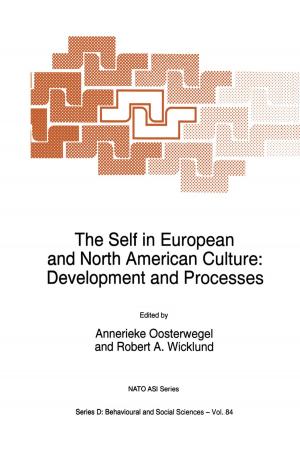Decentralisation, School-Based Management, and Quality
Nonfiction, Reference & Language, Education & Teaching, Educational Theory, Curricula, Administration| Author: | ISBN: | 9789048127030 | |
| Publisher: | Springer Netherlands | Publication: | August 21, 2009 |
| Imprint: | Springer | Language: | English |
| Author: | |
| ISBN: | 9789048127030 |
| Publisher: | Springer Netherlands |
| Publication: | August 21, 2009 |
| Imprint: | Springer |
| Language: | English |
This book, which is the eighth volume in the 12-volume book series Globalisation, Comparative Education and Policy Research, presents scholarly research on major discourses in decentralisation, school-based management (SBM) and quality in education globally. This book, which focuses on decentralisation and SBM as a governance strategy in education, presents theoretical aspects of the phenomenon of decentralisation/privatisation and contextualises them within the education research literature. It provides an easily accessible, practical yet scholarly source of information concerning the dynamics of decentralisation and SBM that normally take place when reforms are instituted to decentralize authority and power. Above all, the authors offering the latest findings regarding major discourses in dec- tralisation, SBM and quality in educational systems in the global culture emphasise aspects of that dynamic interactive process (see also Geo-JaJa 2006a; Gamage and Sooksomchitra 2006, Zajda 2009). This dynamic interaction in the process that is implicit in the title of the book is reified by calls for restructuring of schools f- lowing the idea that schools are not promoting human rights, social cohesion and sustainable development. The chapters as a source book of ideas for researchers, practitioners and policy makers in decentralisation and SBM in education contr- ute to the educational literature while enhancing the understanding of the larger dynamics involved in educational reform. It offers a timely overview of current issues affecting decentralisation in education in the global culture.
This book, which is the eighth volume in the 12-volume book series Globalisation, Comparative Education and Policy Research, presents scholarly research on major discourses in decentralisation, school-based management (SBM) and quality in education globally. This book, which focuses on decentralisation and SBM as a governance strategy in education, presents theoretical aspects of the phenomenon of decentralisation/privatisation and contextualises them within the education research literature. It provides an easily accessible, practical yet scholarly source of information concerning the dynamics of decentralisation and SBM that normally take place when reforms are instituted to decentralize authority and power. Above all, the authors offering the latest findings regarding major discourses in dec- tralisation, SBM and quality in educational systems in the global culture emphasise aspects of that dynamic interactive process (see also Geo-JaJa 2006a; Gamage and Sooksomchitra 2006, Zajda 2009). This dynamic interaction in the process that is implicit in the title of the book is reified by calls for restructuring of schools f- lowing the idea that schools are not promoting human rights, social cohesion and sustainable development. The chapters as a source book of ideas for researchers, practitioners and policy makers in decentralisation and SBM in education contr- ute to the educational literature while enhancing the understanding of the larger dynamics involved in educational reform. It offers a timely overview of current issues affecting decentralisation in education in the global culture.















